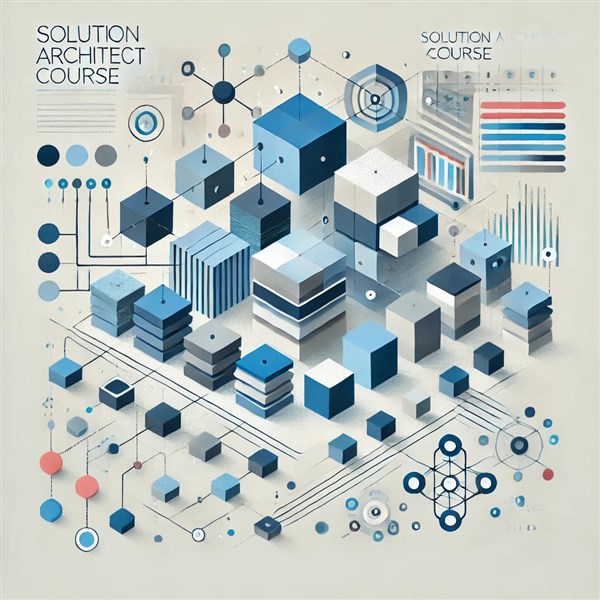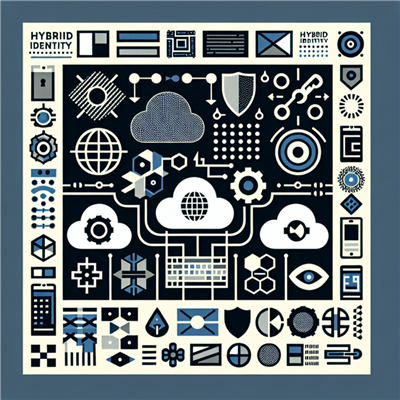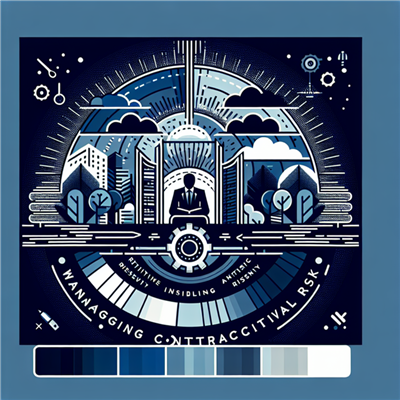
In today’s technology-driven landscape, businesses rely heavily on complex IT systems and applications to meet their operational needs. As organizations strive for efficiency, innovation, and competitiveness, the role of a Solution Architect has become increasingly critical. A Solution Architect is responsible for designing, implementing, and overseeing technology solutions that align with business goals. To excel in this role, professionals must possess a diverse set of skills. Enrolling in a Solution Architect course can significantly enhance your capabilities and prepare you for a successful career. In this blog post, we will explore the essential skills you’ll gain from a Solution Architect course and how these skills can impact your career trajectory.
Skills You’ll Gain from a Solution Architect Course
1. Understanding Systems Design
Mastering the Foundations of Systems Design
One of the core competencies you'll acquire in a Solution Architect course is systems design. This encompasses the processes of defining the architecture, components, modules, interfaces, and data for a system to satisfy specified requirements.
Key Elements of Systems Design
A comprehensive understanding of systems design includes:
- Functional Requirements: Learning how to gather and analyze functional requirements to ensure that the system will perform as needed.
- Non-Functional Requirements: Understanding performance, security, and usability needs that impact the overall user experience.
- Component Interaction: Designing how different components of the system will interact with each other, ensuring seamless integration.
Practical Applications
Through hands-on projects and case studies, you will learn to create robust and scalable system architectures that can support business objectives while being flexible enough to accommodate future changes.
2. Cloud Architecture Expertise
Navigating Cloud Technologies
With the widespread adoption of cloud computing, understanding cloud architecture is crucial for modern Solution Architects. A course in this field will teach you the principles of designing applications and services that leverage cloud platforms such as AWS, Azure, and Google Cloud.
Key Areas of Focus
The course will cover several critical aspects of cloud architecture:
- Cloud Service Models: Gain insights into IaaS, PaaS, and SaaS, learning when to use each model based on specific business needs.
- Scalability and Reliability: Learn how to design solutions that can scale horizontally and vertically, ensuring high availability and disaster recovery.
- Cost Management: Understand how to optimize cloud costs by designing efficient architectures that minimize resource wastage.
Hands-On Experience
Most courses include practical labs where you can build cloud-native applications, set up environments, and implement cloud security measures. This hands-on experience is invaluable for gaining the confidence to manage cloud solutions effectively.
3. Effective Communication Skills
The Importance of Communication
A successful Solution Architect must communicate complex technical concepts in a clear and concise manner to various stakeholders, including business leaders, developers, and clients. A Solution Architect course emphasizes the development of communication skills that are essential for this role.
Skills Developed
- Stakeholder Engagement: Learn techniques for effectively engaging with stakeholders to gather requirements, discuss designs, and present solutions.
- Technical Documentation: Master the art of creating clear and comprehensive documentation that outlines system architecture, design decisions, and implementation plans.
- Presentation Skills: Develop the ability to present your ideas and solutions confidently in meetings and workshops, ensuring that all parties understand the technical aspects of the project.
Collaboration and Teamwork
In addition to formal communication skills, you will learn how to foster collaboration among team members and encourage open dialogue to resolve conflicts and drive project success.
4. Knowledge of Design Patterns and Best Practices
Leveraging Design Patterns
Design patterns are reusable solutions to common problems in software design. A Solution Architect course will familiarize you with various design patterns that can help you create more efficient and maintainable architectures.
Common Design Patterns Covered
- MVC (Model-View-Controller): Understanding how to separate concerns in applications to enhance modularity and maintainability.
- Microservices Architecture: Learning how to design systems using microservices, allowing for independent deployment and scaling.
- Event-Driven Architecture: Exploring how to build systems that react to events in real-time, improving responsiveness and flexibility.
Best Practices
In addition to learning design patterns, you will explore best practices for architecture design, including security considerations, testing strategies, and performance optimization techniques.
5. Technical Proficiency in Tools and Technologies
Familiarization with Industry-Standard Tools
A Solution Architect course will expose you to a variety of tools and technologies that are essential for effective solution design and implementation.
Tools You Will Learn About
- Modeling Tools: Gain proficiency in tools like UML (Unified Modeling Language) and ArchiMate for visualizing and documenting architectural designs.
- Cloud Management Tools: Understand how to use cloud management platforms and services for deployment, monitoring, and scaling.
- DevOps Practices: Learn about Continuous Integration/Continuous Deployment (CI/CD) practices and tools that facilitate collaboration between development and operations teams.
Hands-On Training
Many courses provide opportunities to work with these tools through hands-on exercises and projects, ensuring that you gain practical experience that can be applied in the workplace.
6. Business Acumen
Aligning IT Solutions with Business Goals
A successful Solution Architect must understand how technology solutions support overall business objectives. A course in this field will help you develop the necessary business acumen to bridge the gap between technology and business.
Key Focus Areas
- Understanding Business Processes: Learn how to analyze and optimize business processes to identify opportunities for technology-driven improvements.
- Cost-Benefit Analysis: Develop the skills to conduct cost-benefit analyses to justify architectural decisions and investments in technology.
- Risk Management: Understand how to assess risks associated with technology implementations and design mitigation strategies.
Strategic Thinking
By combining technical knowledge with business insight, you will be better equipped to design solutions that deliver real value to organizations.
7. Problem-Solving and Critical Thinking Skills
Cultivating Analytical Skills
Solution Architects often face complex challenges that require innovative solutions. A Solution Architect course emphasizes the development of problem-solving and critical thinking skills that are essential for overcoming obstacles in system design and implementation.
Techniques Learned
- Root Cause Analysis: Learn how to identify the underlying causes of problems and develop effective solutions to address them.
- Scenario Analysis: Develop the ability to evaluate multiple scenarios and their implications, allowing you to make informed decisions.
- Decision-Making Frameworks: Gain familiarity with frameworks and methodologies that facilitate effective decision-making in uncertain situations.
Real-World Applications
Through case studies and hands-on projects, you will apply these problem-solving techniques to real-world scenarios, preparing you for the challenges you will encounter in your career.
Conclusion
Enrolling in a Solution Architect course equips you with a diverse set of essential skills that are crucial for success in this demanding role. From systems design and cloud architecture to effective communication and business acumen, the competencies you develop will not only enhance your career prospects but also prepare you to tackle complex challenges in the technology landscape.
As organizations continue to rely on innovative technology solutions, the demand for skilled Solution Architects will only increase. By investing in your education and gaining these essential skills, you will position yourself as a valuable asset in the ever-evolving world of technology.
Whether you're looking to kickstart your career or advance to new heights, a Solution Architect course is a pivotal step that can transform your professional journey. With the right training, you can become a leader in designing solutions that drive business success and create a meaningful impact in your organization.
Koenig Solutions, a leading IT training company, offers an in-depth solution architect course designed to equip you with the skills and knowledge you need to excel in your career. With experienced trainers and a comprehensive curriculum, Koenig Solutions ensure you get the best out of your training experience.







COMMENT